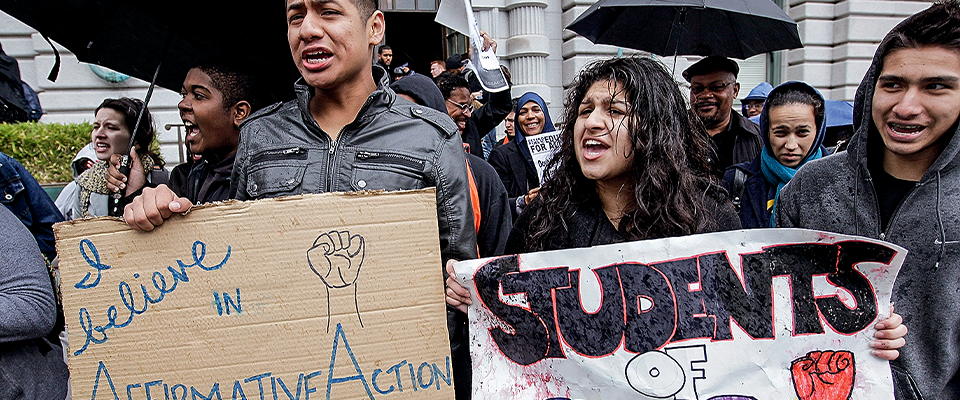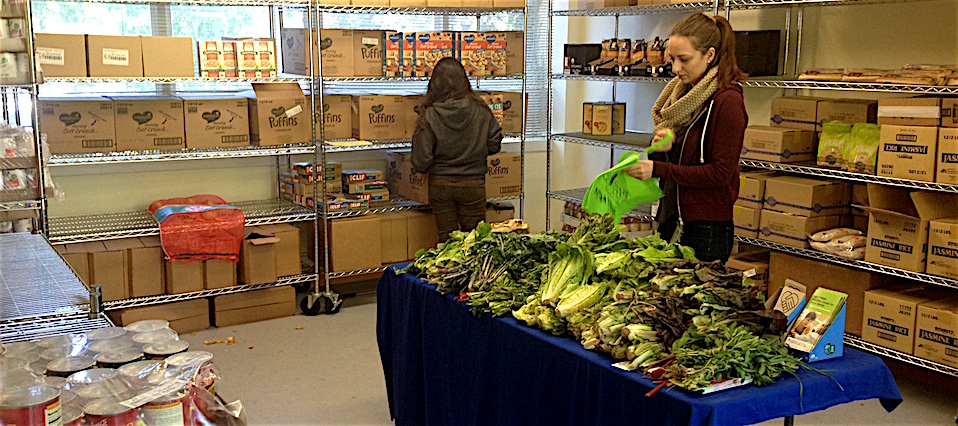In March of last year, Alice Waters, the food activist and owner of the Chez Panisse restaurant, surprised everyone by prematurely announcing the University of California’s plans for a major, sweeping initiative to take on the many problems in the food system—not just on campuses but around the globe. University officials scrambled to release as much information as they felt they could, but some faculty and staff members already working on food issues felt left out of the loop by UC President Janet Napolitano and the chancellors, who spearheaded the initiative. Perhaps understandably, they were worried about their independence and even their futures.
The angst went on for some months, past the official announcement last July of what is now called the UC Global Food Initiative. But just a year in, many of those concerns have been assuaged. The initiative, by most accounts, has had a successful first 12 months. That’s especially noteworthy given how huge and wide-ranging it is. Not only has it apparently not trampled over any existing programs, it seems to have helped most of them—often with new funding, new staff, and, especially, a new level of cooperation among programs and campuses across the system.
“The GFI really helps us with direction, visibility, and coordination of programs,” says Ann Thrupp, executive director of the Berkeley Food Institute. “Some campuses had very little of that.” With the initiative patching everyone from all 10 UC campuses together in one big network, she adds, people on the UC Riverside campus, for example, don’t have to “reinvent the wheel” to get programs like its new campus garden started.
The Berkeley Food Institute was only about a year old when it learned of the GFI’s imminent launch. “At the beginning, there wasn’t transparency,” Thrupp says. “Faculty members were annoyed and suspicious. But ultimately, we learned pretty quickly that it was helping.” Others in the system who were similarly affected, and who asked not to be identified, told the same story. UC President Janet Napolitano declined through a spokesperson to comment on the early stumbles.
When Napolitano announced the GFI, its ambitions seemed outsized. They still do.
The UC itself described its mission as “audacious and far-reaching.” The goal: “harnessing the collective power of UC to help put the world on a path to sustainably and nutritiously feed itself.”
But it’s even bigger than that. It involves not only faculty research into big issues like malnutrition and problems associated with pesticides, but also many small programs like campus sustainability plans, local food pantries, and farmers markets. It helped produce “California Matters,” a video series by popular New York Times food writer Mark Bittman, and it has helped UC Berkeley continue its pre-existing program Edible Education.
It was during an Edible Education class last year, in fact, that Alice Waters revealed the GFI’s formation to an audience of about 500—some of whom were visibly nervous as she spoke, either because they knew nothing about the program, or because they knew everything about it. Today Michael Pollan, the author and Berkeley journalism professor, says the initiative “has definitely given a boost to Edible Education” and “the course now looks likely to continue.” While it’s hard to assess such a huge program after only a year based on anything more than what he called “atmospherics,” Pollan adds that the initiative “has certainly raised the profile of food issues on campus and generated a lot of energy around them.”
And there are several concrete accomplishments: forming 20 working groups to create toolkits and guidelines to be used by programs throughout the system; hosting a slew of events, contests, lectures, special classes; creating web sites; and doling out $75,000 to each campus to support student food security and access (aimed at those UC students who don’t have access to enough food, or to enough nutritious food).
Perhaps the most fruitful achievement thus far is the initiative’s fellowship program. In the first year, 54 research grants worth $2,500 each were awarded to students at all 10 campuses. The program has been expanded, and the amounts raised to $4,000 for the study of topics like community gardens, food pantries, global health and environmental issues, urban agriculture, and food waste.
“My big question is how long GFI will last?…As you can imagine, we’re all working under strained public university budgets.”
The Berkeley Food Institute managed the fellowships on the Cal campus. Miranda Everitt, then a graduate student, used her fellowship to produce case studies on faculty research that has been used successfully to affect public policy, with an eye toward creating guidelines for future researchers.
The research she examined ranged from studies of bee-colony collapse to agro-ecology to climate science. It’s often difficult to get policy makers to even look at research, much less understand it, she says, but the researchers she based her case studies on have proved it can be done. There are many approaches, but the chief rubric is for often-wonky researchers to “know their audience,” she says. Policy makers are rarely experts, and should be treated as knowledgeable laypeople. “Academia isn’t really set up to reward this skill,” Everitt acknowledges—but it’s certainly crucial if research is going to inform policymaking rather than sit on a shelf.
Funding remains a major concern among many now working under the GFI. First, there’s the usual academic politics: One’s own program is never getting enough money, and everybody else’s programs are always getting too much. Several people, all asking not to be identified, expressed anxiety that funding will dry up for the initiative, which so far has been financed with $500,000 from the President’s Initiative Fund, over which Napolitano has wide discretion. “My big question is how long GFI will last, how much administrative and financial support there will be from [the president’s office] going forward,” says one person who works on UC food-oriented programs. “As you can imagine, we’re all working under strained public university budgets.”
The president’s office declined to answer specific questions, instead sending California this statement attributed to Napolitano:
“One year after we launched the Global Food Initiative, we can see the power of harnessing the knowledge and resources of our UC campuses, national laboratories and agricultural programs across the state and world. A big plus has been the participation of students as GFI Fellows. Looking ahead, collaboration among faculty and other experts, together with student involvement, will enable us to build on the momentum of the first year and continue to expand the work of the initiative.”
Photos provided by the University of California.



















